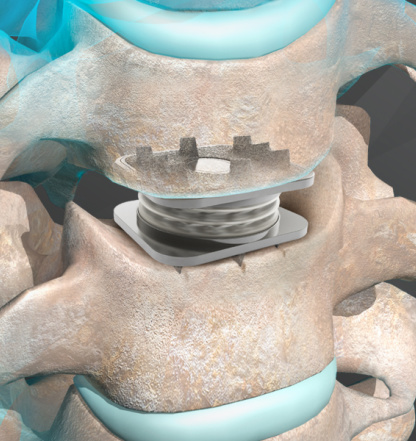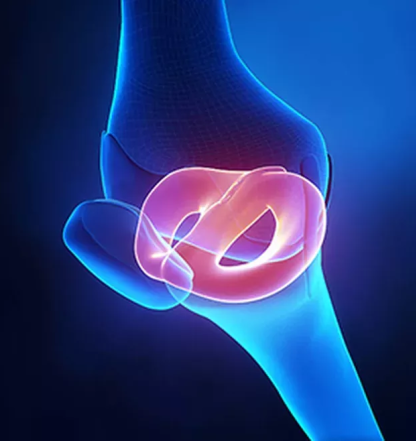For so many neck and back pain sufferers, there is nothing more devastating than a failed back surgery. To deal with chronic pain and symptoms for years, undergo invasive surgery, and go through a lengthy recovery process only to find…
For so many neck and back pain sufferers, there is nothing more devastating than a failed back surgery. To deal with chronic pain and symptoms for years, undergo invasive surgery, and go through a lengthy recovery process only to find the pain is still there, or even worse than before, can take a serious physical and emotional toll. Studies estimate that failed back surgery syndrome could affect anywhere from 5% to even 36% of people who undergo spine surgery.
Failed back surgery is a general term for pain or symptoms resulting from unsuccessful or complicated spine surgery. Although people often think of the lower back, failed spine surgery can include procedures in the cervical spine or neck surgery. In fact, one form of this condition that is not as widely discussed is failed artificial disc neck surgery.
If you are dealing with any form of failed back surgery, including an unsuccessful artificial disc neck surgery, we’re sharing the following guide to help. Dr. Chappuis and the entire Spine Center Atlanta team specialize in failed back and neck surgery treatment, and we’re passionate about helping you find the relief you deserve.
What Causes Failed Artificial Disc Neck Surgery?
The term failed back surgery syndrome describes a large number of specific problems that can happen during and after a spine procedure. Common causes of failed back surgery in general include:
- Misdiagnosis of the condition
- Surgical errors, including damaging surrounding nerves and other tissue
- Implant failure, including rejection of fusion material or failure of hardware such as a pedicle screw
- Infection in the surgical site
- Reinjury due to improper healing or overexertion during recovery
Failed artificial disc neck surgery is a type of failed back surgery that we encounter at Spine Center Atlanta. For many spine conditions, including severe disc herniation in the cervical spine, artificial disc replacement is an effective option. By replacing a damaged disc with an artificial implant, patients can achieve improved stability in the cervical spine without the loss of flexibility that can come with fusion procedures.
But in some cases, there are potential problems that happen with this surgery, especially if it was performed incorrectly or used a lower quality implant. Possible specific causes of artificial disc neck surgery failure include:
- Bone fracture or bone damage caused by the artificial disc
- Older or lower quality artificial disc implants
- Improper surgical installation
- Misalignment due to bone or implant erosion
Anyone who has undergone artificial disc replacement in the cervical spine should reach out to a qualified provider to receive an accurate diagnosis.
Diagnosis and Treatment for Failed Artificial Disc Neck Surgery and Other Types of Failed Back Surgery
Diagnosing failed back surgery and failed neck surgery involves many of the standard steps for diagnosing other spine conditions. You should expect a review of your medical history, a physical examination that includes movement tests and undergoing diagnostic imagery such as an X-ray or MRI.
To properly treat any unsuccessful spine surgery, accurate diagnosis is critical. Especially if a misdiagnosis was the underlying cause the first time around. For failed artificial disc neck surgery treatment, spine specialists will often recommend starting a plan with nonsurgical options.
As with other types of failed back surgery, common and effective therapies may include:
- Over-the-counter and prescription medications
- Physical therapy and rehabilitation, including aquatic therapy
- Therapeutic massage
- Wellness therapy, such as nutritional management
- Alternative therapies, such as acupuncture
- Staying active
- Behavioral care, such as pain management therapy and meditation
Each patient and case of failed back surgery syndrome is different, which is why personalized care is so important. Spine Center Atlanta offers comprehensive, individualized treatment under one roof for the convenience and improved outcomes of our patients. If revision surgery does become an option for failed back surgery, including failed artificial disc neck surgery, our board-certified surgical team specializes in these cases at our state-of-the-art surgical facility.
When to Consider Revision Surgery for a Failed Spine Procedure
In general, cases where there is not an emergency requiring immediate revision, physicians recommend patients dealing with any type of failed back surgery pursue nonsurgical treatment over a course of weeks or months. If pain still persists, and there is an operable condition present, a follow-up procedure can be the best option for achieving long-term relief.
In the case of failed artificial disc neck surgery, disc damage may require disc replacement. Cervical spine artificial discs have advanced substantially in recent years. If the disc is the right fit for the patient, follow-up disc replacement surgery may help reduce neck pain and other symptoms.
If you are dealing with a failed cervical spine artificial disc, Spine Center Atlanta can help. Revision surgery is very often successful and Dr. Chappuis is considered a nationally recognized expert, his staff consists of some of leading and highly skilled surgeons.
Spine Center Atlanta is based in Atlanta but serves clients across the country. If you believe you may be struggling with failed neck or back surgery, please contact us today or call 404-351-5812.






























